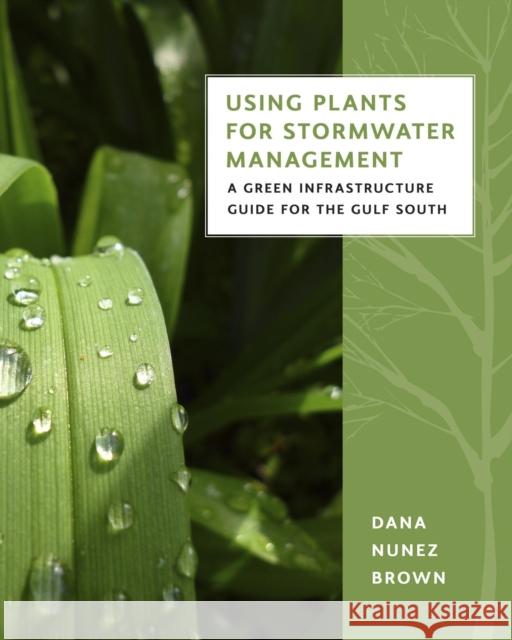Using Plants for Stormwater Management: A Green Infrastructure Guide for the Gulf South » książka
Using Plants for Stormwater Management: A Green Infrastructure Guide for the Gulf South
ISBN-13: 9780807155677 / Angielski / Miękka / 2014 / 128 str.
The subtropical climate of the Gulf South supports a varied abundance of flora, and this diversity is sustained by the ample amount of rainwater that characterizes the region. Managing rainwater in a planned environment and mitigating its effect on human habitation can test the skills of even the most seasoned landscape architect or designer. That challenge has never been more acute as increased human demand for natural resources compels professionals and home gardeners alike to seek out sustainable ecological solutions.
In this guidebook, Dana Nunez Brown details ways to manage each drop of rainwater where it falls, using a cost-effective and environmentally sensitive approach. Under natural conditions, rainfall primarily percolates into the ground and flows as groundwater until it is absorbed by trees and other vegetation, after which it is evaporated into the atmosphere and the cycle starts anew. Brown identifies plants and techniques that leverage this natural process in order to filter, clean, and slow runoff, a practice known as Low Impact Development.
Using Plants for Stormwater Management presents the native ecological communities and plant species of the Gulf South in easy-to-follow sections and diagrams. Information ranging from the productiveness of root structures and the compatibility of plants with local soils to the optimal elevation of specific vegetation and the average dimensions of foliage is represented by graphic icons for quick and easy identification.
An accessible and essential resource, this book gives both novices and experts the know-how to harness rainfall and create beautiful, ecologically functioning landscapes.











